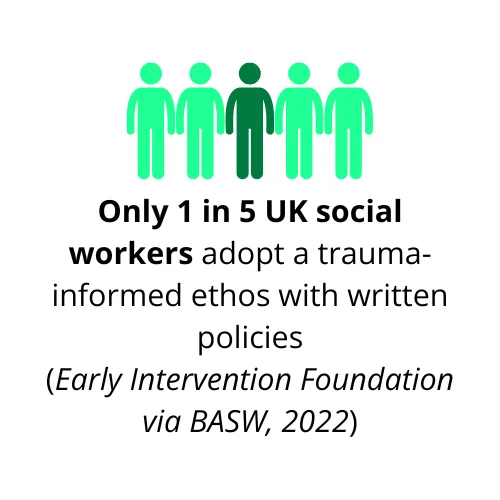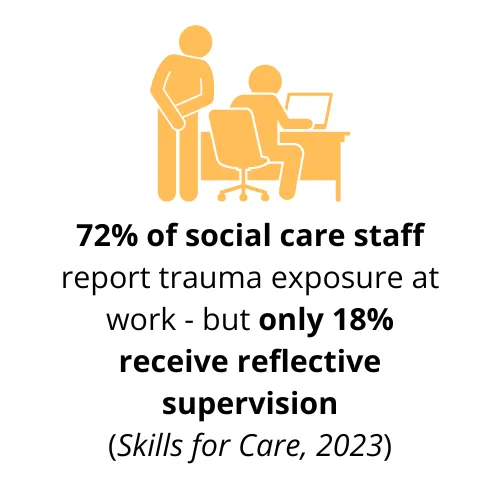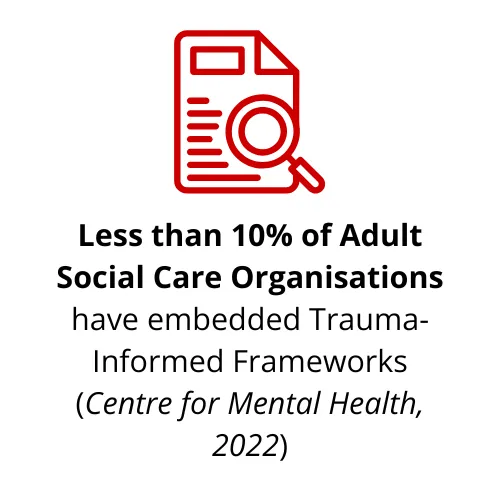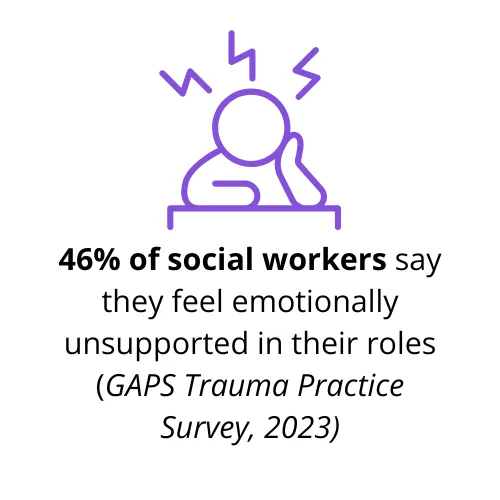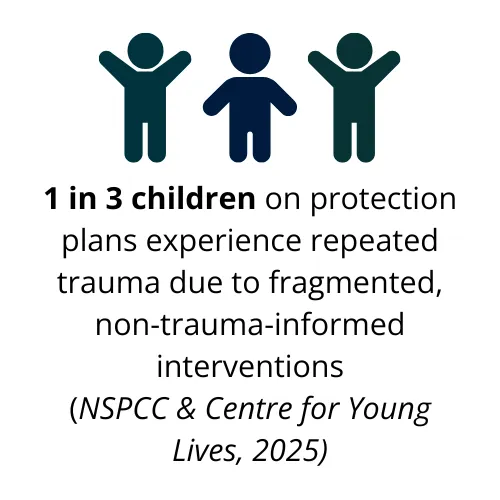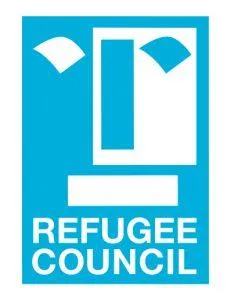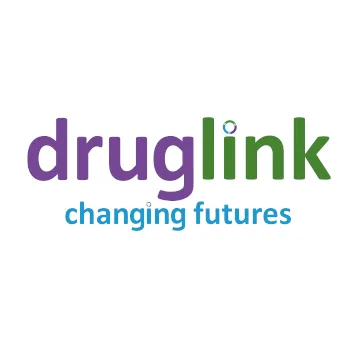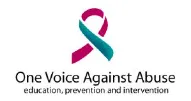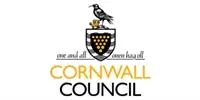Trauma Regulation for Social Work
From Crisis response to Trauma-Regulation: embedding lived safety in Statutory Practice
The Trauma Regulation Board places trauma science at the heart of children’s social work, recognising the emotional labour, systemic pressures, and complex decisions social workers face; we ensure every assessment, decision, and intervention is trauma‑informed to reduce avoidable harm, protect family life, and uphold the principles of child law.
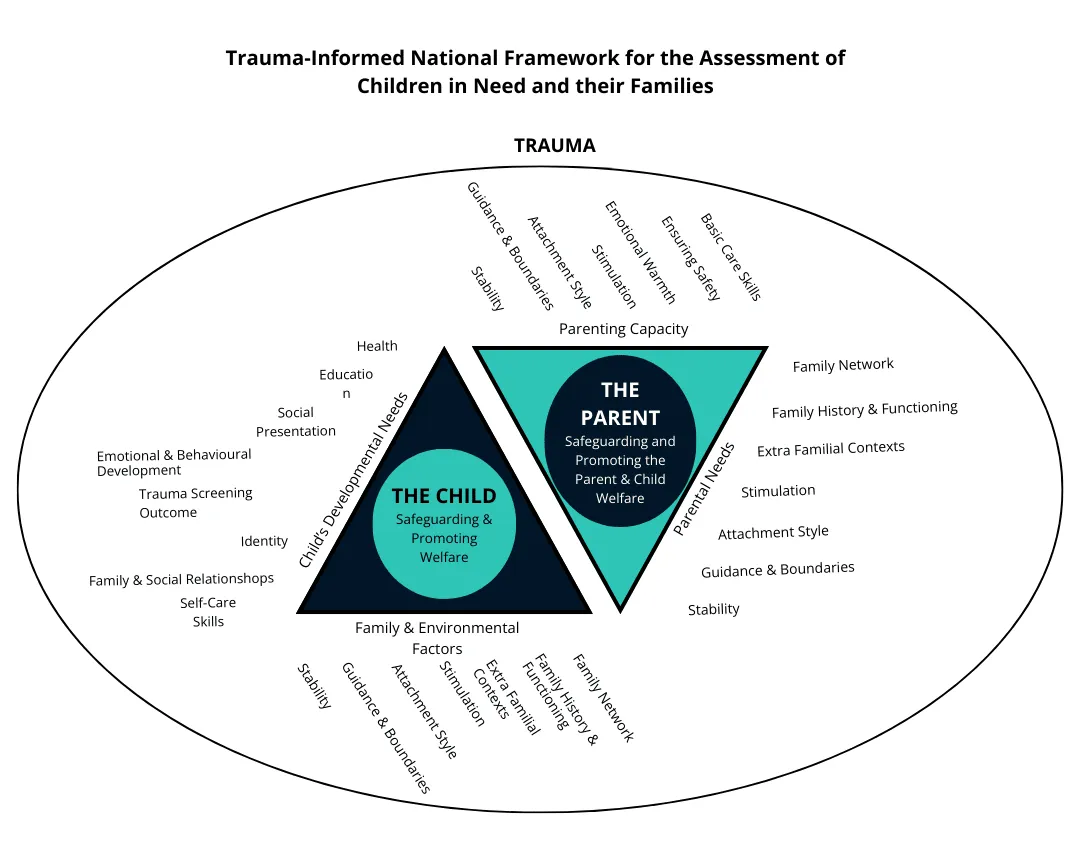
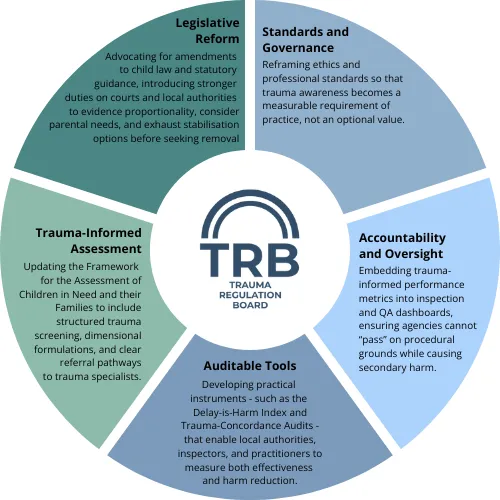
Trauma Focused Social Services Training
For too long, statutory social work has been dominated by crisis-led interventions, procedural compliance, and performance metrics that prioritise timeliness over lived safety. Families are frequently retraumatised by duplication, surveillance, and escalation, while practitioners experience moral distress when their professional values are misaligned with systemic imperatives.
TRB exists to close this gap. We are driving a national shift from a crisis-intervention model to a trauma-informed practice model, one that honours the Children Act 1989 welfare principles, aligns with the Families First Partnership, and ensures that children are supported to grow up safely within their families wherever possible.
Why It Matters
Trauma is not a marginal issue - it is the underlying driver of much of what social care seeks to address: neglect, family breakdown, youth offending, and intergenerational cycles of harm. Without trauma regulation, the system optimises for procedural safety at the expense of real safety. With trauma regulation, children and families can be supported through stabilisation, least-intrusive alternatives, and recovery pathways that are both ethically sound and legally defensible.
The TRB is building the infrastructure for this transformation - aligning practice with the best of child law, international human rights, and trauma science. Our goal is nothing less than to reshape the foundations of children’s social work, protecting the public by ensuring services deliver safety that is lived, not just recorded.
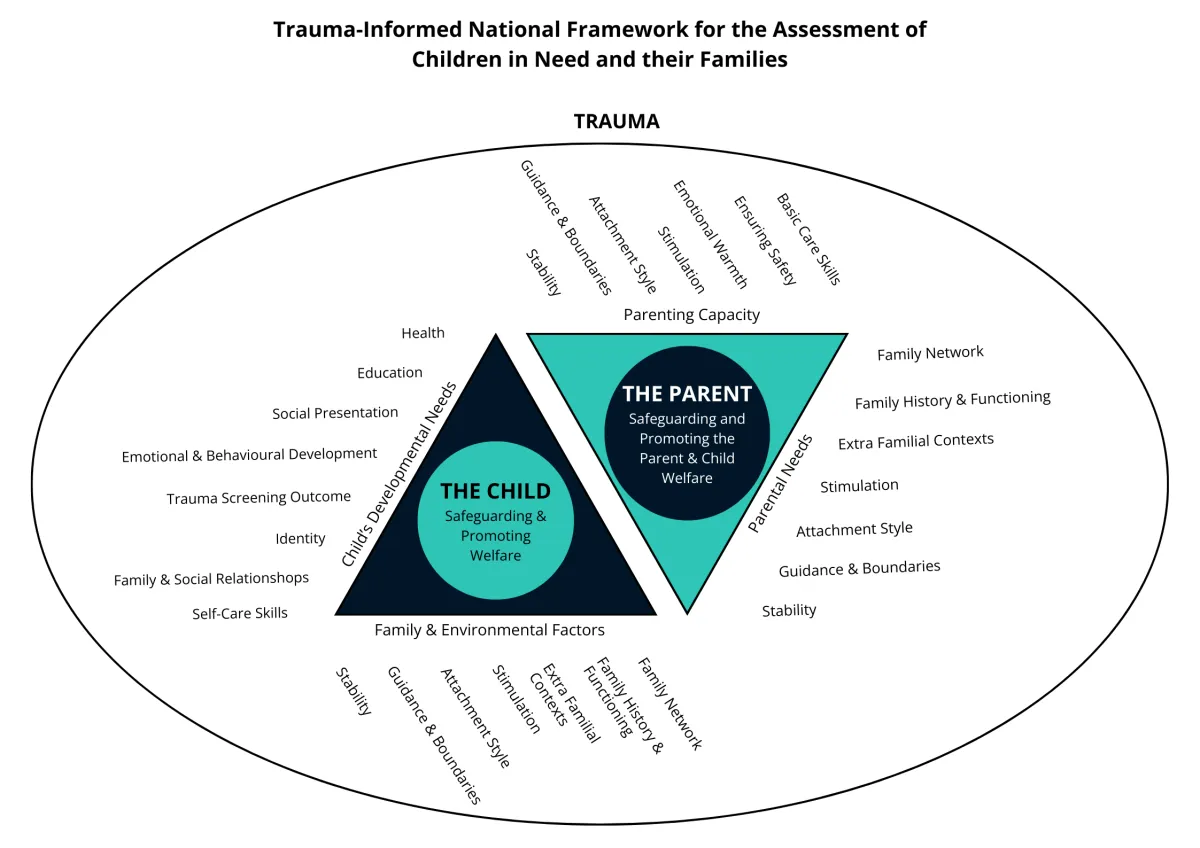
Why Statutory Services Keep Getting Trauma Wrong - and How TRB Can Help
Every day, frontline professionals in social work, family courts, and statutory safeguarding encounter behaviours that are symptoms of trauma, yet are misread as defiance, hostility, or neglect. These misinterpretations escalate families into crisis, often triggering unnecessary child removals, retraumatisation, and costly service churn.
The Trauma Regulation Board’s Cluster Map is a breakthrough tool designed to correct this systemic blind spot. It links neurobiological mechanisms to behavioural clusters and shows how statutory systems misinterpret them - and how trauma-informed practice reframes them into proportionate, protective responses.
This is not optional: failure to recognise trauma in statutory practice risks breaching Article 8 of the European Convention on Human Rights (ECHR, 1950) and undermining duties under the Equality Act 2010 and UNCRC (1989). Ofsted itself has repeatedly criticised weak inter-agency working while still rating services “good” on the basis of timeliness and form completion (Ofsted, 2019; 2023). This is the Safety Mirage: systems appear safe procedurally while delivering harm in practice.
Trauma Misinterpretation Cluster Map in Statutory settings
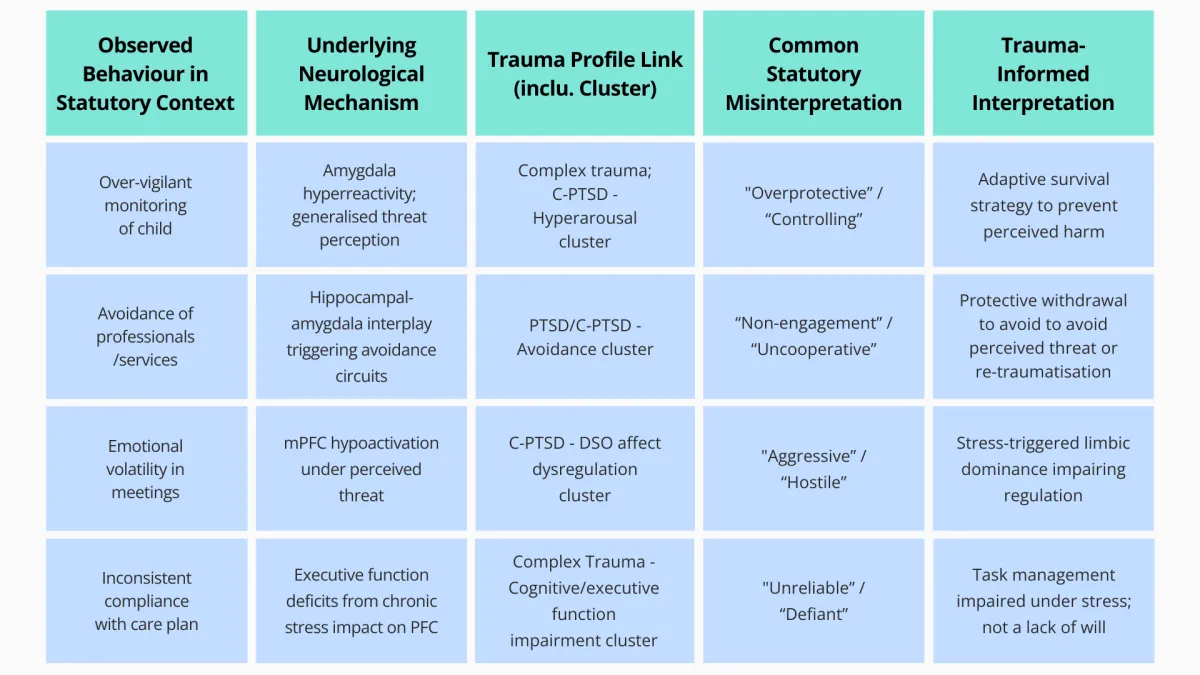
The Minds behind the Movement

Rachel Fairhurst
Rachel Fairhurst is a highly focused strategist with years of experience in the operations and service delivery of trauma-focused care. Currently writing a book in trauma-focused social work with Routledge publishers and contributing to Psychiatric reform and a PHD in mental health & Criminology. Rachel has dedicated her life to bringing solutions to people and services.
CEO - The Trauma Regulation Board

Tom Hawkins
Tom Hawkins is a skilled professional with extensive experience in children social work and social work teaching. He is passionate about delivering trauma-informed social work practice through transparent and accurate assessments, care planning and service delivery, underpinned by research and knowledge and supported by social work ethics and professional standards.
Director of Trauma focused Social Work
Speaking & Conference Engagements
Rachel Fairhurst and Tom Hawkins are available for keynote speaking, panel contributions, and trauma-informed conference engagements
Join The TRB Now
Become a Trauma-Focused Social Care Professional
Join the TRB Mailing List
Receive trauma-informed insights, practitioner updates, and exclusive newsletters directly to your inbox

© 2025 Trauma Regulation Board - All Rights Reserved │ Privacy Policy │Terms & Conditions

